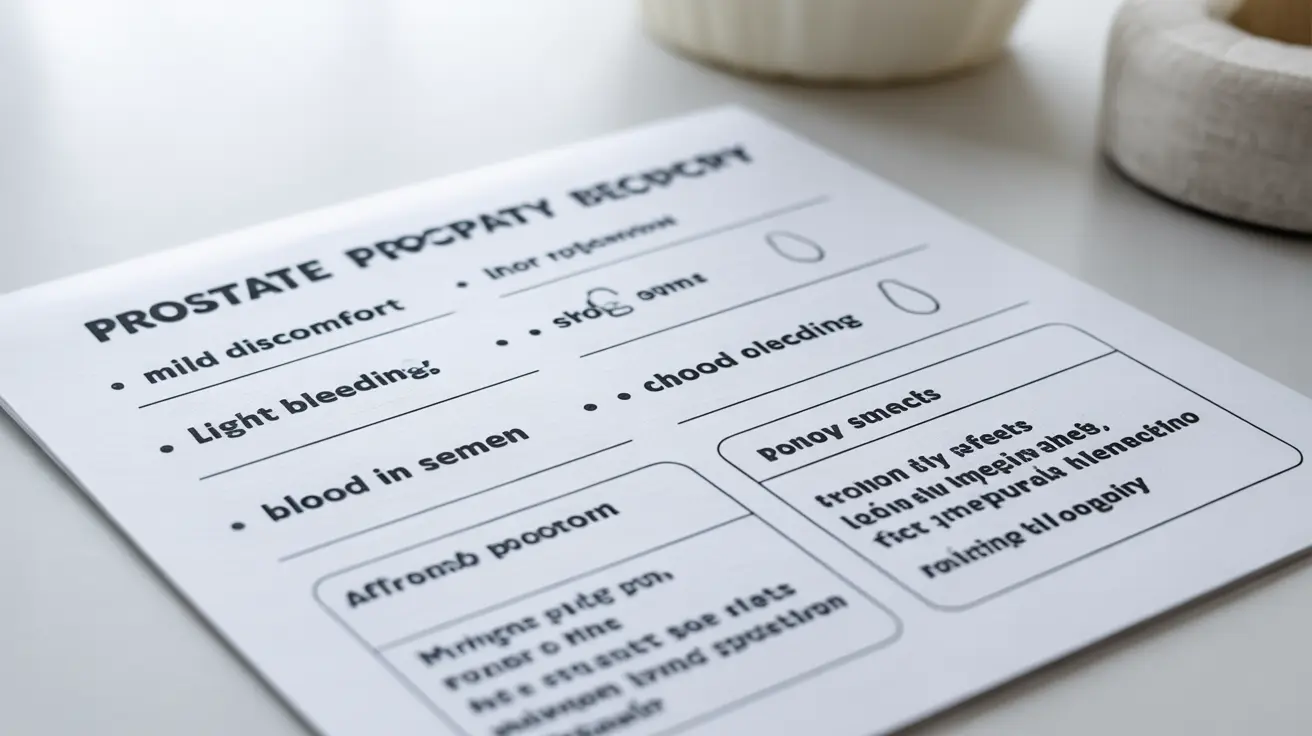Understanding what to expect during prostate biopsy recovery is crucial for patients preparing for or recovering from this important diagnostic procedure. A prostate biopsy involves removing small tissue samples from the prostate gland for examination, and knowing how to properly manage the recovery period can help ensure optimal healing and reduce complications.
This comprehensive guide will walk you through the typical recovery timeline, common side effects, and important precautions to take after your procedure. Whether you're scheduled for a transrectal or transperineal biopsy, this information will help you navigate your recovery with confidence.
Understanding the Recovery Timeline
The recovery period after a prostate biopsy typically varies from person to person, but most men can expect to resume many normal activities within 24-48 hours. However, complete healing may take several days to a few weeks, depending on the biopsy method used and individual healing factors.
Initial Recovery Period (First 24-48 Hours)
During the first day or two after your biopsy, you may experience:
- Mild discomfort or soreness in the biopsy area
- Light bleeding from the rectum (for transrectal biopsies)
- Blood in your urine
- Blood in your semen (which may last several weeks)
- Difficulty urinating
Extended Recovery (1-2 Weeks)
Over the following week or two, most symptoms gradually improve. You may notice:
- Decreasing frequency of blood in urine
- Reducing discomfort
- Gradual return to normal urinary function
- Continued presence of blood in semen (this can last up to several weeks)
Managing Common Side Effects
Bleeding Management
Some bleeding is normal after a prostate biopsy. You may notice:
- Pink-tinged urine for several days
- Blood in bowel movements (especially after transrectal biopsy)
- Blood-tinged semen for up to 6 weeks
Pain and Discomfort
Most men experience minimal pain after the procedure. However, you may manage any discomfort by:
- Taking over-the-counter pain relievers as recommended by your doctor
- Using ice packs to reduce swelling
- Avoiding prolonged sitting
- Taking warm baths after the first 24 hours
Activity Restrictions and Precautions
To ensure proper healing, follow these guidelines:
- Avoid strenuous exercise for 1-2 weeks
- Refrain from sexual activity for at least 1 week
- Stay well-hydrated
- Complete any prescribed antibiotics
- Avoid heavy lifting for several days
Differences Between Biopsy Methods
Transrectal Biopsy Recovery
This more common approach typically involves:
- Slightly quicker initial recovery
- Possible rectal bleeding
- Higher risk of infection
- More dietary restrictions initially
Transperineal Biopsy Recovery
This alternative method may involve:
- Lower infection risk
- Minimal to no rectal bleeding
- Slightly longer comfort recovery
- Different activity restrictions
Warning Signs and When to Seek Help
Contact your healthcare provider immediately if you experience:
- Fever above 101.5°F (38.6°C)
- Severe pain or bleeding
- Difficulty urinating or complete inability to urinate
- Foul-smelling discharge
- Worsening symptoms after initial improvement
Frequently Asked Questions
How long does it typically take to recover from a prostate biopsy and resume normal activities?
Most men can return to light activities within 24-48 hours, though complete recovery may take 1-2 weeks. Sexual activity should be avoided for at least one week.What are common side effects during prostate biopsy recovery, such as bleeding or discomfort, and how long do they last?
Common side effects include blood in urine (few days), blood in semen (up to 6 weeks), mild discomfort (few days), and possible difficulty urinating (1-2 days).What activity restrictions should I follow after a prostate biopsy to ensure a smooth recovery?
Avoid strenuous exercise, heavy lifting, and sexual activity for at least one week. Stay well-hydrated and complete any prescribed antibiotics.What are the differences in recovery between transrectal and transperineal prostate biopsy methods?
Transrectal biopsies typically have a quicker initial recovery but higher infection risk, while transperineal biopsies have lower infection risk but may require slightly longer comfort recovery.When should I contact my doctor because of complications or unusual symptoms after a prostate biopsy?
Contact your doctor if you experience fever above 101.5°F, severe pain or bleeding, difficulty urinating, foul-smelling discharge, or worsening symptoms after initial improvement.




